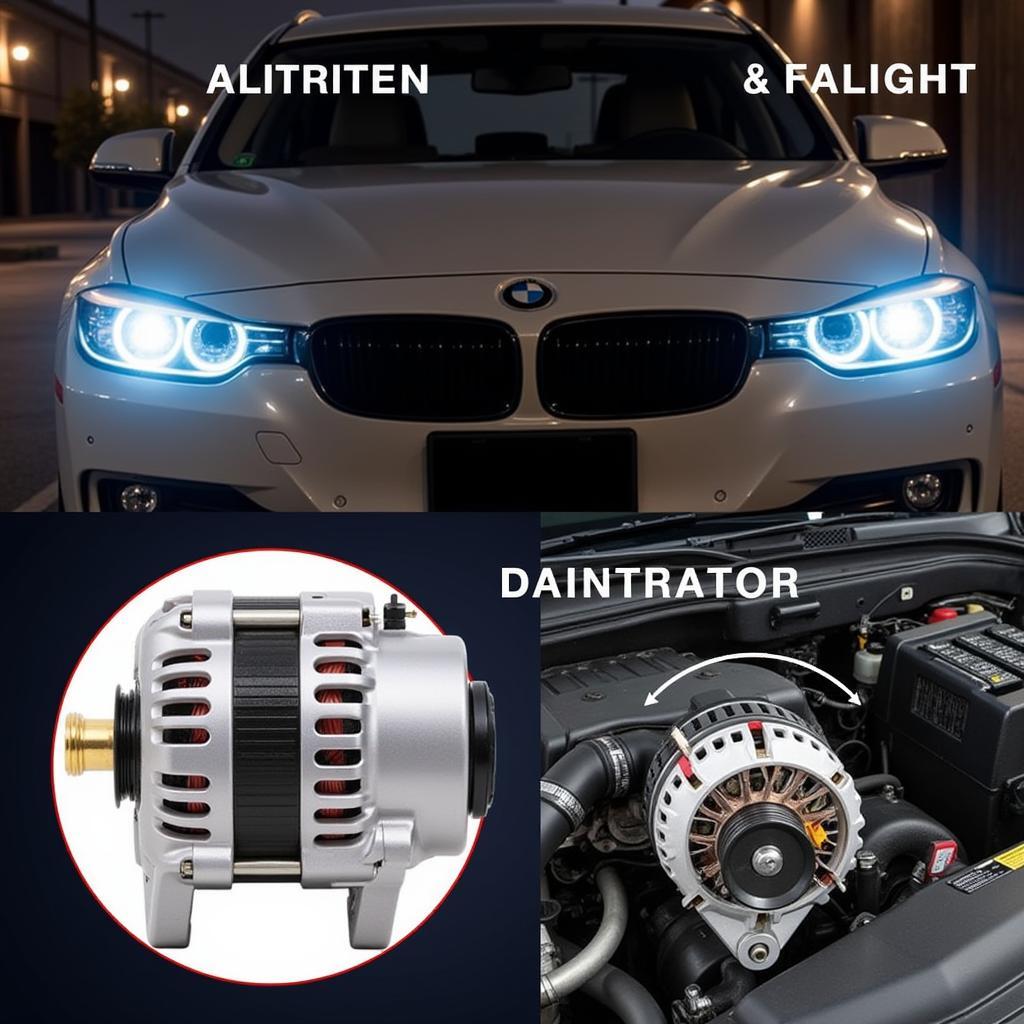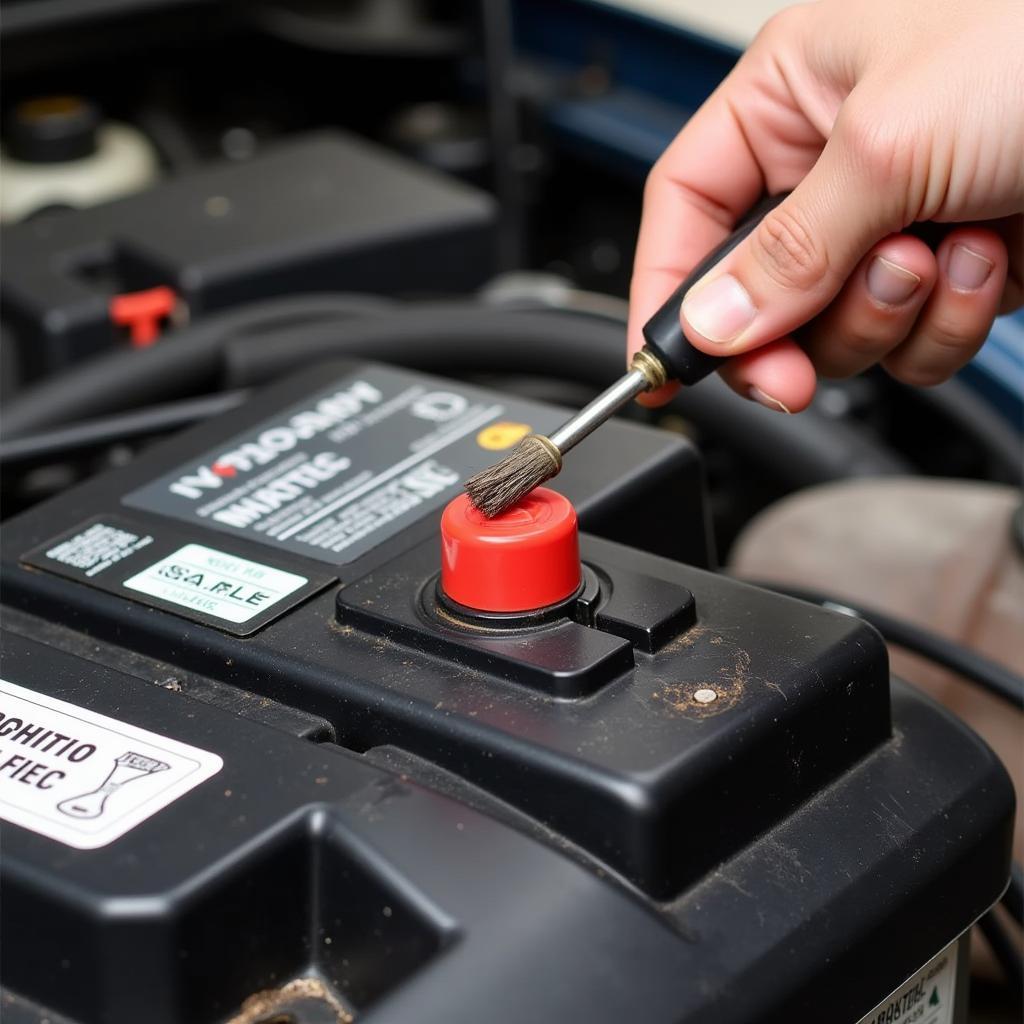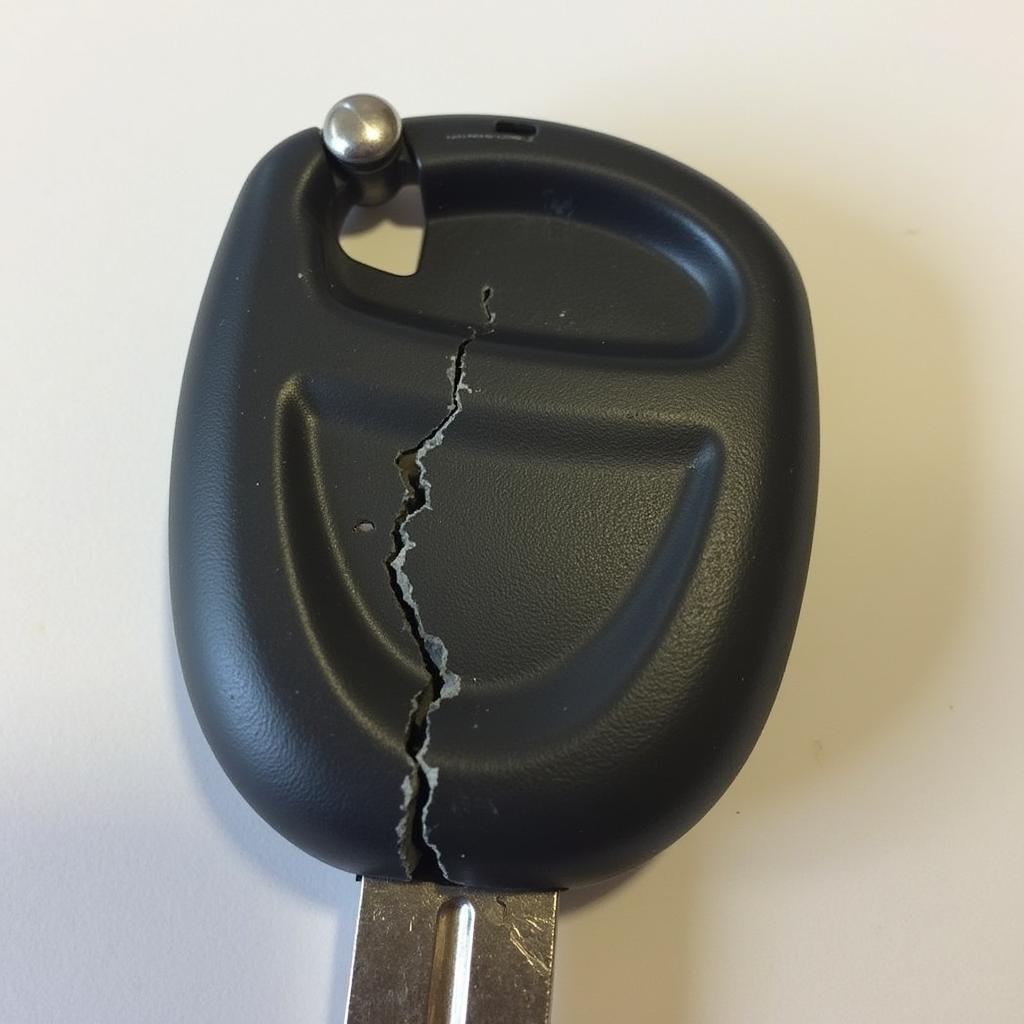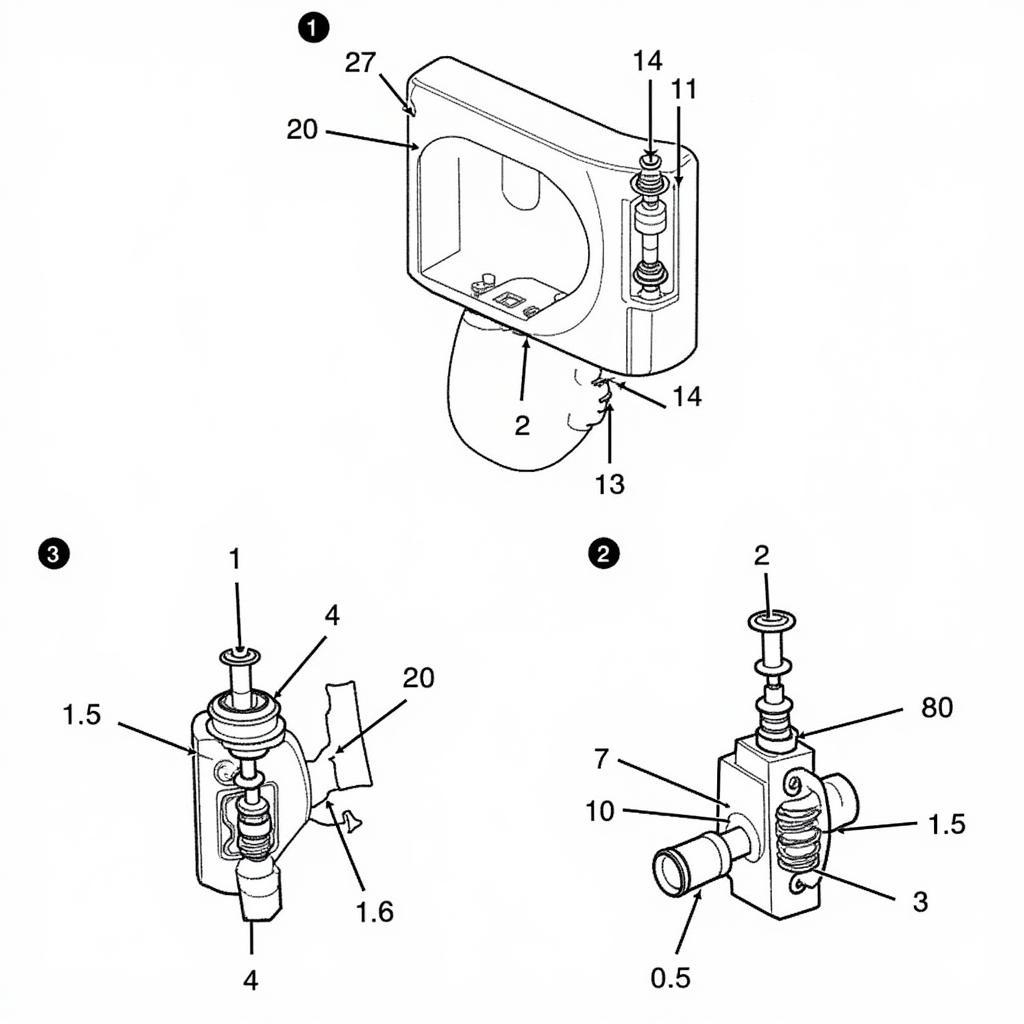If your car battery dies every few days, you’re not alone. This is a common issue that can be incredibly frustrating. This article will guide you through the potential causes and solutions, helping you get back on the road and avoid future battery drain.
Why Does My Car Battery Keep Dying?
There are several reasons why your car battery might be dying frequently. Some are easy to fix, while others require professional help. Let’s explore the most common culprits:
Parasitic Drain: The Silent Battery Killer
A parasitic drain is a constant drain on your battery, even when the car is off. This can be caused by faulty wiring, malfunctioning components (like interior lights, radio, or alarm system), or even aftermarket accessories.
- Symptoms: Battery dies after a few days of inactivity.
- Diagnosis: Use a multimeter to measure current draw with the car off.
- Solution: Identify and disconnect the problematic circuit or component.
Faulty Alternator: Not Charging Properly
The alternator is responsible for recharging the battery while the engine is running. A faulty alternator won’t charge the battery effectively, leading to frequent battery death.
- Symptoms: Dimming headlights, flickering dashboard lights, whining noise from the alternator.
- Diagnosis: Test the alternator’s output voltage with a multimeter.
- Solution: Replace the faulty alternator.
Old or Damaged Battery: Time for a Replacement
Batteries have a limited lifespan, typically 3-5 years. An old or damaged battery loses its ability to hold a charge, causing it to die quickly.
- Symptoms: Slow engine cranking, battery warning light on the dashboard.
- Diagnosis: Have the battery tested at an auto parts store.
- Solution: Replace the old battery with a new one.
 Signs of a Faulty Alternator
Signs of a Faulty Alternator
Extreme Temperatures: Affecting Battery Performance
Extreme temperatures, both hot and cold, can affect battery performance. Cold weather can slow down the chemical reactions inside the battery, reducing its ability to provide power. Hot weather can cause the battery fluid to evaporate, shortening its lifespan.
- Symptoms: Difficulty starting the car in extreme temperatures.
- Diagnosis: Inspect the battery for signs of damage or corrosion.
- Solution: Park your car in a garage or shaded area to protect it from temperature extremes.
Short Trips: Not Enough Time to Recharge
If you frequently drive short distances, the alternator may not have enough time to fully recharge the battery after starting the car. This can lead to a gradual discharge and eventual battery death.
- Symptoms: Battery dies after several short trips.
- Diagnosis: Check the battery’s voltage after a long drive and compare it to the voltage after several short trips.
- Solution: Take your car for a longer drive periodically to allow the alternator to fully recharge the battery.
How to Troubleshoot a Dying Car Battery
Here are some steps you can take to diagnose the cause of your dying car battery:
- Check the battery terminals: Make sure they are clean and tightly connected.
- Test the battery voltage: Use a multimeter to check the battery’s voltage with the car off.
- Check the alternator output: Test the alternator’s voltage with the engine running.
- Inspect for parasitic drains: Use a multimeter to measure current draw with the car off.
“Regularly checking your battery and charging system can prevent unexpected breakdowns and save you money in the long run,” says John Smith, ASE Certified Master Technician.
Preventing Future Battery Problems
- Regularly clean the battery terminals: Corrosion can impede the flow of current.
- Limit short trips: Take your car for longer drives occasionally.
- Turn off all accessories when the car is off: This includes lights, radio, and anything plugged into the cigarette lighter.
- Have your battery and charging system tested regularly: This can help identify potential problems before they become serious.
 Car Battery Maintenance Tips
Car Battery Maintenance Tips
Conclusion
A car battery that dies every few days is a sign of an underlying issue. By understanding the common causes and following the troubleshooting tips in this article, you can identify the problem and get it fixed. Don’t let a dead battery leave you stranded. Take proactive steps to maintain your car battery and ensure reliable starting. Addressing the issue promptly can save you time, money, and frustration.
FAQ
- How long does a car battery last? Typically, 3-5 years.
- What are the signs of a bad alternator? Dimming headlights, flickering dashboard lights, and a whining noise.
- Can I jump-start my car every time the battery dies? While possible, it’s not a long-term solution and can damage other components.
- How can I prevent a parasitic drain? Identify and disconnect any devices or components drawing power when the car is off.
- Is it expensive to replace a car battery? The cost varies depending on the type of battery, but it’s generally a relatively affordable repair.
- Can extreme temperatures affect my car battery? Yes, both hot and cold weather can impact battery performance.
- How can I tell if my car battery terminals are corroded? Look for a white, powdery substance around the terminals.
“Don’t underestimate the importance of a healthy battery. It’s the heart of your car’s electrical system,” advises Sarah Jones, Lead Automotive Electrical Engineer.



